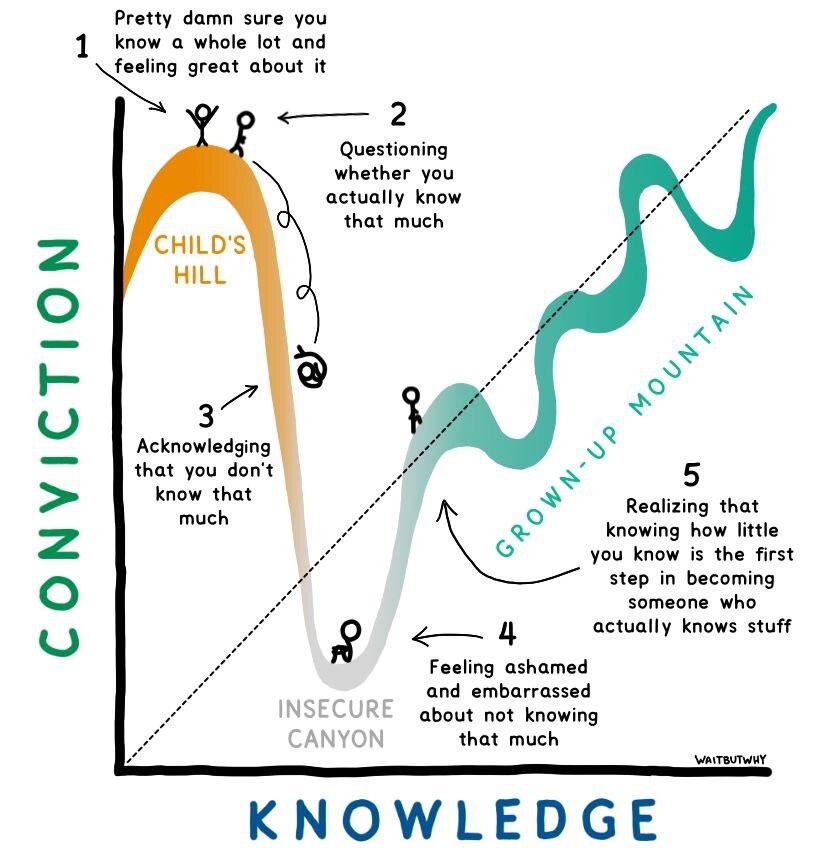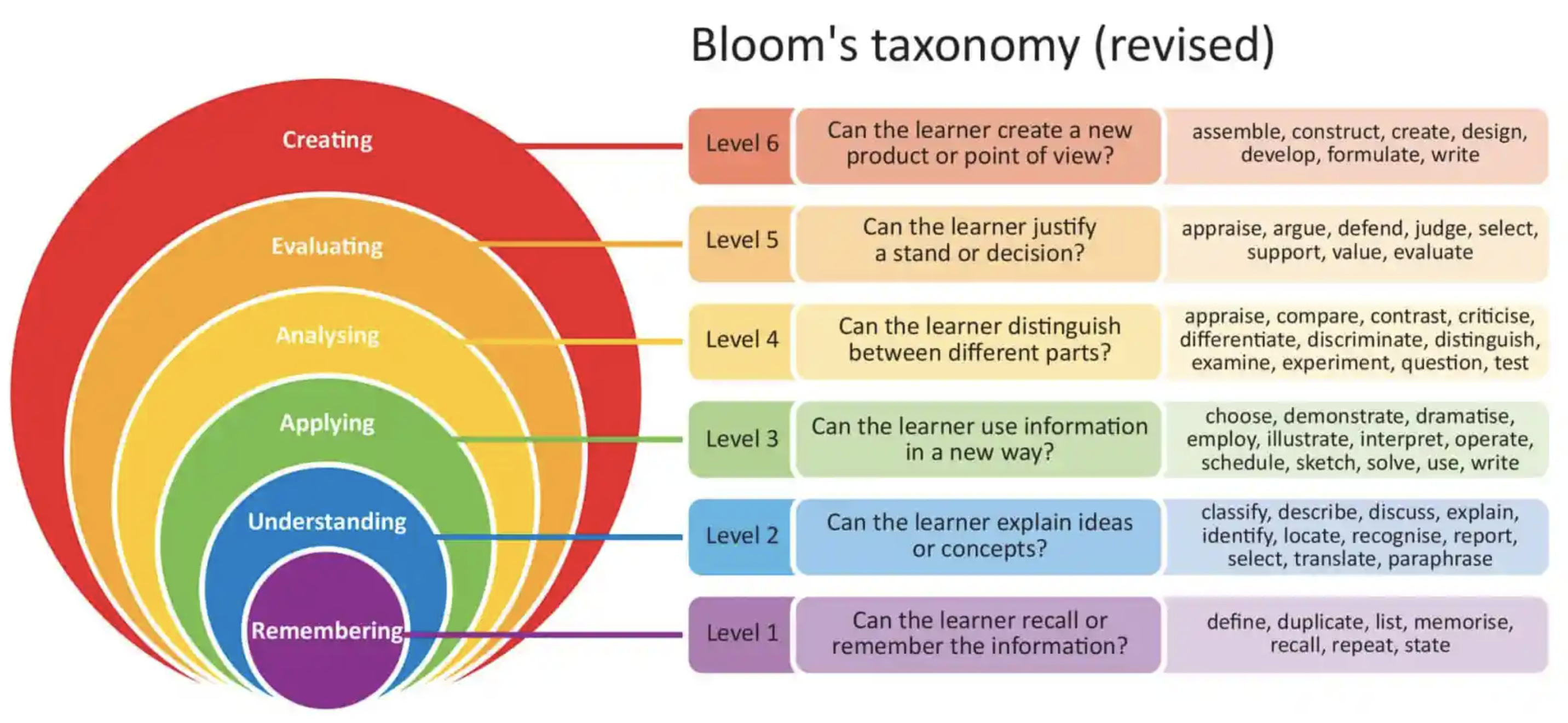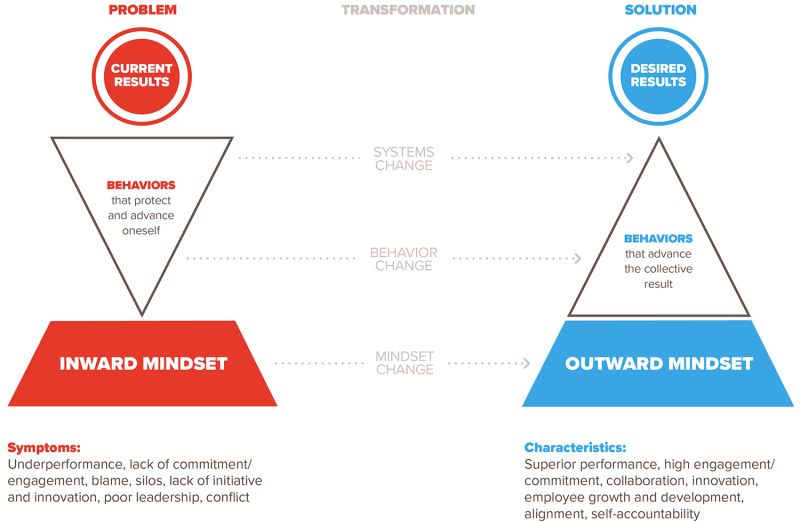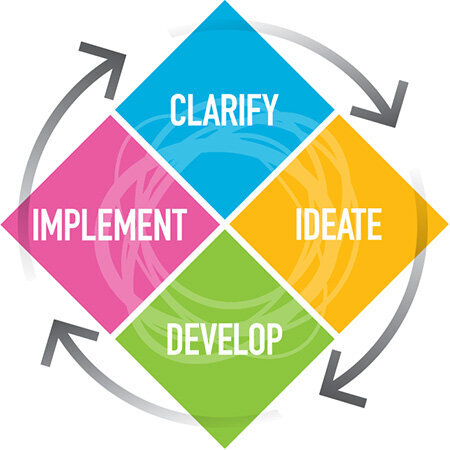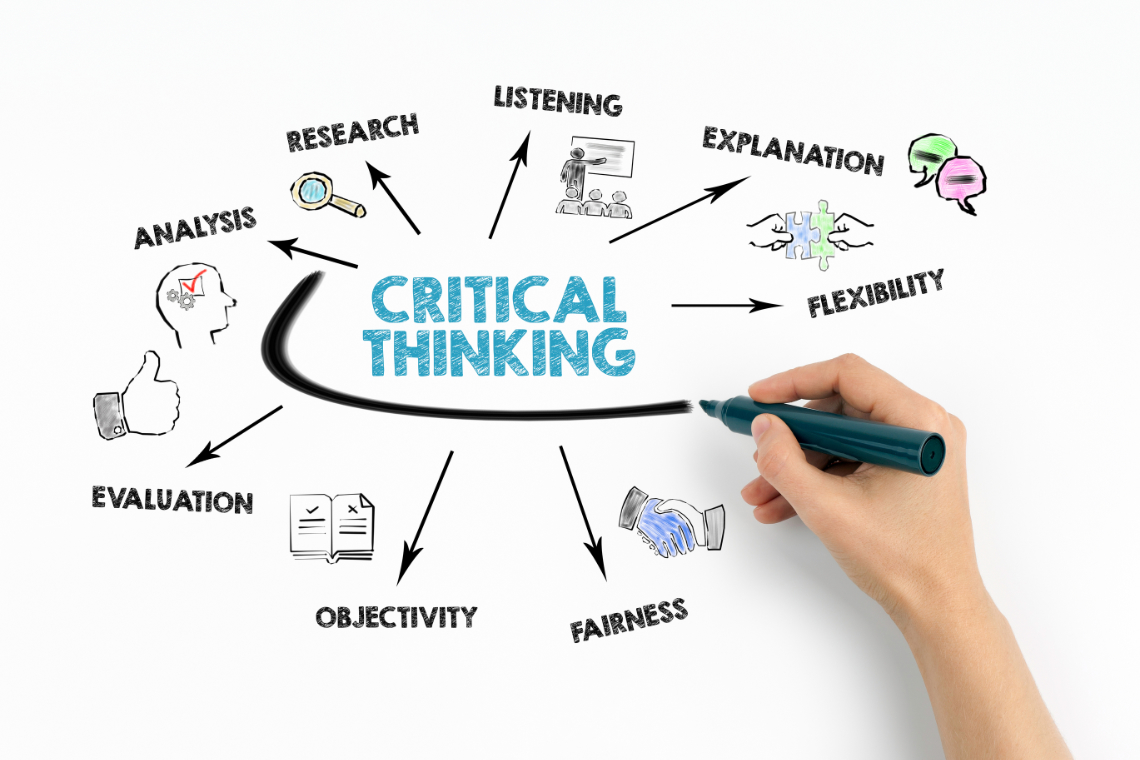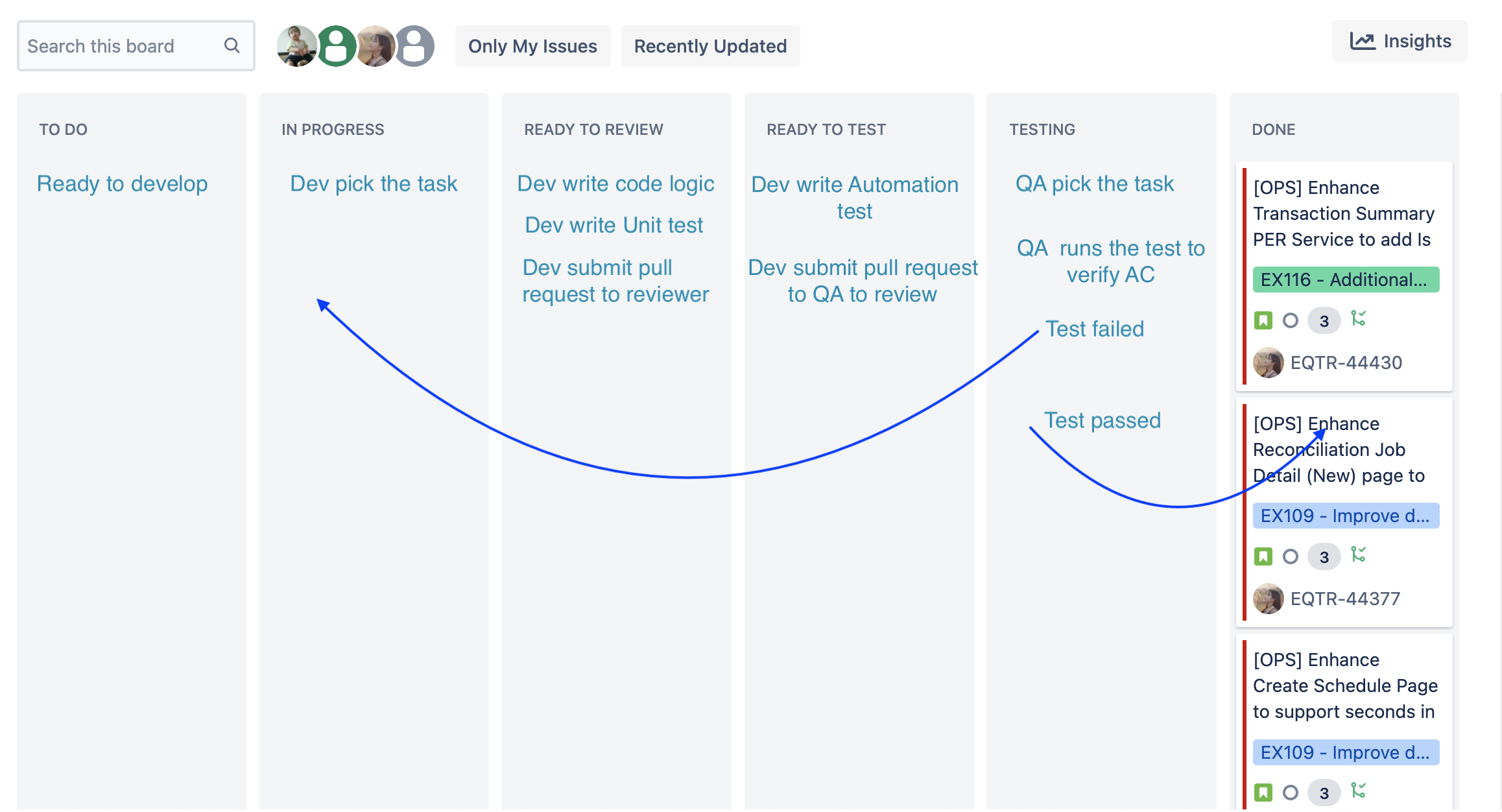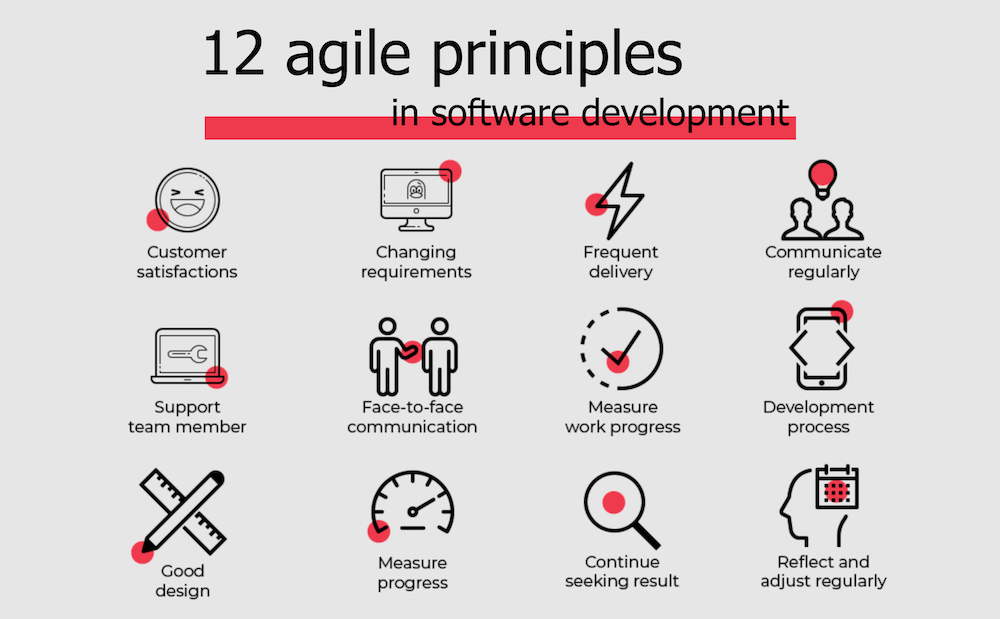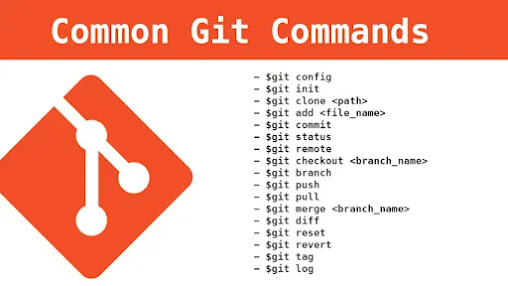Contents What is Dunning-Kruger effect? The Dunning-Kruger effect is a cognitive bias in which people with limited competence in a particular domain overestimate their abilities. Some researchers also include the opposite effect for high performers: their tendency to underestimate their skills The concept of the Dunning-Kruger effect is based on a 1999 paper by Cornell University psychologists David Dunning and Justin Kruger. They tested participants on their logic, grammar, and sense of humor, and found that those who performed in the bottom quartile rated their skills far above average. For…
Danh mục: Trends
What is Bloom’s Taxonomy and Why is it Important for Education?
Contents What is Bloom’s Taxonomy and Why is it Important for Education? Bloom’s Taxonomy is a framework for classifying and organizing different levels of learning. It can help teachers design effective learning objectives and activities, and help students assess their own progress and understanding. Bloom’s Taxonomy consists of three domains: cognitive, affective, and psychomotor. Each domain has a number of levels ranging from simple to complex and concrete to abstract. The cognitive domain is the most commonly used in education, and it includes six levels: knowledge, comprehension, application, analysis, synthesis,…
How to Apply The Outward Mindset in Your Personal and Professional Growth
Contents What is an outward mindset? Mindset is about how you experience your surroundings: with an inward mindset you focus on personal objectives, while people with an outward mindset take into account one’s impact on the views, needs and challenges of others. People with an Outward Mindset also take the perspectives, needs and challenges of others into account, adjust their behaviour accordingly and continue to monitor results. An outward mindset is a way of seeing and relating to others that focuses on their needs, goals, and challenges, rather than on…
What are Problem-Solving Skills and Why are They Important?
Contents What are the Problem Solving skills Problem-solving skills are the ability to identify problems, brainstorm and analyze answers, and implement the best solutions Problem-solving skills are abilities you use when giving and receiving different kinds of information. Problem-solving skills involve listening, speaking, observing and empathizing. They are essential for personal and professional success, as they can help you to build positive and productive relationships, express your ideas and opinions clearly and confidently, understand and respond to the needs and expectations of others, collaborate and cooperate effectively, and resolve conflicts…
Critical Thinking Skills: What They Are and How to Develop Them
Contents What are Critical Thinking skill? Critical thinking skills are abilities you use when giving and receiving different kinds of information. Critical thinking skills involve listening, speaking, observing and empathizing. They are essential for personal and professional success, as they can help you to build positive and productive relationships, express your ideas and opinions clearly and confidently, understand and respond to the needs and expectations of others, collaborate and cooperate effectively, and resolve conflicts and disagreements constructively. Critical thinking is the analysis of available facts, evidence, observations, and arguments in order to form a judgment by…
How to Define and Apply the Definition of Done in Agile Scrum: A Practical Guide for Scrum Teams
Contents What is the DoD? “The Definition of Done creates transparency by providing everyone a shared understanding of what work was completed as part of the Increment. If a Product Backlog item does not meet the Definition of Done, it cannot be released or even presented at the Sprint Review. Instead, it returns to the Product Backlog for future consideration.” What are the benefits of the Agile definition of done? Implementing the Agile definition of done offers some key advantages, which coincide with the three pillars of Scrum: Scrum team…
How to Follow the 12 Agile Principles: A Step-by-Step Guide for Software Development Teams
Contents What are the Agile principles 12 Agile principles are a part of Agile methodology. Agile means moving and thinking fast and easily. Based on that concept, the Agile model was introduced, especially in the software industry, to facilitate and improve project management. Principle 1: Customer satisfactions “Our highest priority is to satisfy the customer through early and continuous delivery of valuable software.” To make a product quickly delivered to end-users. Agile teams often focus on creating a minimum viable product (MVP). An MVP only comes with enough core features and is…
Git Basics: A Beginner’s Guide to the Most Common Commands
Git Commands git config This command sets the author name and email address respectively to be used with your commits.1git config –global user.name “[name]” 2git config –global user.email “[email address]” git init This command is used to start a new repository.1git init [repository name] git clone This command is used to obtain a repository from an existing URL.1git clone [url] git add This command adds a file to the staging area.1git add [file] This command adds one or more to the staging area.1git add * git commit This command records…


